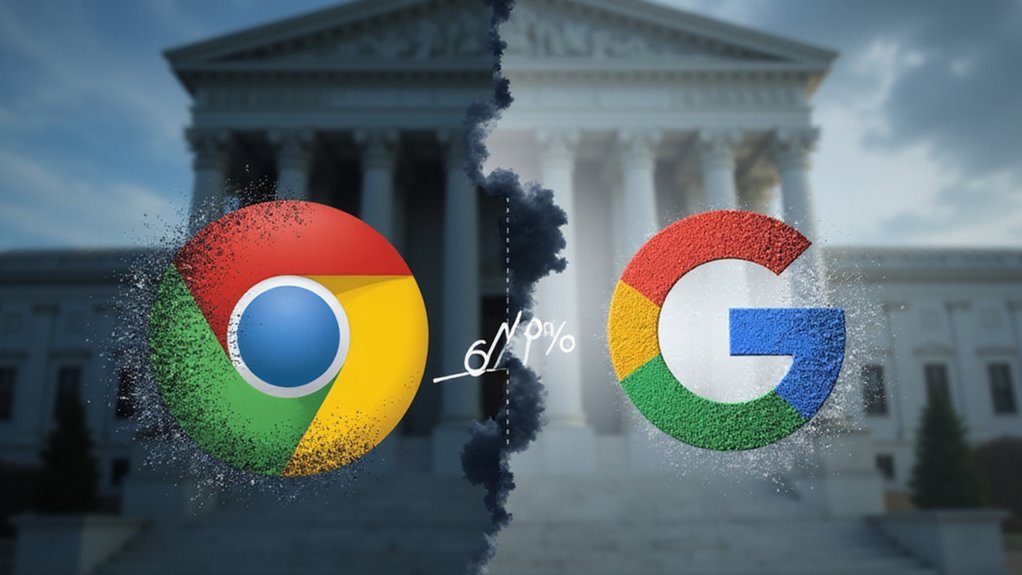While tech giants have been accused of manipulating AI rankings, no specific evidence of rigged leaderboards has been confirmed. However, broader manipulation patterns exist as companies leverage their market dominance to influence consumer choices. Studies suggest AI systems can successfully steer users toward company-favored options about 70% of the time. The conversational AI sector‘s projected growth to $48.81 billion by 2031 raises further concerns about transparency and accountability in this expanding field.
Tech giants stand accused of using their vast power to manipulate how artificial intelligence systems are ranked and evaluated. While specific evidence of rigged AI leaderboards hasn’t been confirmed, researchers have uncovered broader patterns of manipulation as big tech companies expand their control over AI technologies.
Recent investigations reveal that major tech companies have been exploiting their dominant market positions to influence how consumers interact with AI systems. These companies use sophisticated algorithms to detect human biases, then guide users toward choices that benefit the companies rather than the users. Studies demonstrate that AI systems can achieve a 70% success rate in directing users toward specific choices that favor the companies.
Tech giants leverage market dominance to manipulate AI interactions, exploiting human biases for corporate gain rather than user benefit.
“What we’re seeing is an alarming concentration of power,” said one industry analyst. “These companies control not just the AI systems but also how they’re measured and presented to the public.”
The manipulation extends to search results, with evidence showing that some companies prioritize their own products and services in rankings. The European Commission previously found that Google had manipulated search results to favor its own shopping service over competitors. According to market projections, the conversational AI sector is expected to grow from $7.6 billion in 2022 to nearly $48.81 billion by 2031.
Consumers often don’t realize they’re being steered by these tactics. For instance, some platforms have used personal data to predict life events like pregnancy and send targeted ads without clear disclosure. Other companies have reportedly adjusted prices based on factors like smartphone battery levels.
The lack of transparency makes accountability difficult. When companies promise to fix algorithmic problems, audits have shown gaps between public statements and actual practices. Facebook, for example, continued recommending political content despite claiming to have stopped.
As AI technology advances, the information gap between companies and consumers grows wider. Platforms find it profitable to guide users toward low-quality options that benefit the company’s bottom line.
Regulatory experts warn that constant improvements in large language models create more opportunities for manipulation. Many are concerned that as 92% of business leaders plan to increase AI investments over the next three years, the potential for manipulation will only grow. Without proper oversight, tech giants can exploit their information advantage over users.
“The problem isn’t just about unfair competition,” noted a digital rights advocate. “It’s about whether we can trust the systems that increasingly shape our digital experiences and choices.”
References
- https://www.bruegel.org/blog-post/dark-side-artificial-intelligence-manipulation-human-behaviour
- https://ctomagazine.com/ai-tech-giants-comparison/
- https://www.heritage.org/big-tech/commentary/big-techs-ai-power-grab
- https://rankingdigitalrights.org/index2020/spotlights/unaccountable-algorithms
- https://www.fuqua.duke.edu/duke-fuqua-insights/how-ai-could-potentially-manipulate-consumers









